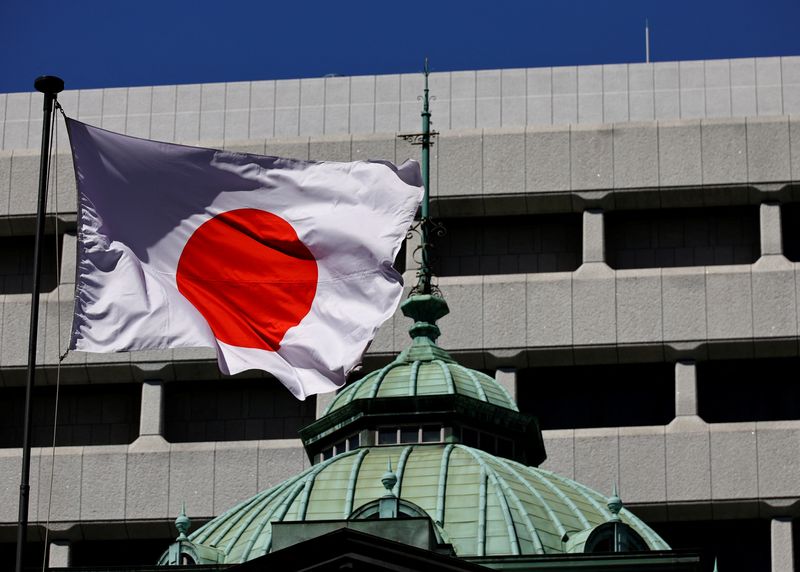By Leika Kihara
TOKYO (Reuters) -Bank of Japan policymakers were divided on how soon they could raise interest rates with some warning of the risk of renewed market volatility after the U.S. presidential election, a summary of opinions at their October meeting showed on Monday (NASDAQ:MNDY).
Many BOJ board members highlighted the need to focus on the economic fallout from market moves at last month's policy review held days before the U.S. presidential election on Nov. 5, a sign that shifts in the yen will remain key to how soon the central bank will raise rates again.
While the risk of a U.S. hard landing subsided, the BOJ must scrutinise market developments "as it was too early to conclude markets will restore calm" with trades driven in part by speculation over the U.S. election outcome, one member said.
"The BOJ must be well prepared over the chance market volatility could heighten depending on the outcome of the U.S. presidential election," another opinion showed.
At the Oct. 30-31 meeting, the BOJ maintained ultra-low interest rates but said risks around the U.S. economy were somewhat subsiding, signalling that conditions are falling into place to raise interest rates again.
Global stock markets rallied and the dollar rose after Donald Trump was elected U.S. president in a decisive victory, easing fears among policymakers of prolonged uncertainty on the outcome.
But analysts warn of renewed market volatility in the event Trump follows through on his calls for higher tariffs, potentially keeping inflation elevated and muddling the U.S. Federal Reserve's rate cut path.
Given still-high uncertainty, doves in the BOJ's nine-member board recommended proceeding slowly with one saying the central bank must "take time and exercise caution" when raising rates, the summary showed.
Another opinion warned of the risk of further BOJ rate hikes triggering market turbulence and disrupting the bank's long-term path toward rolling back its massive monetary stimulus.
Others, however, saw the need to communicate clearly the BOJ's resolve to continue raising rates if its economic and price forecasts are met, the summary showed.
"The Bank should consider further rate hikes after pausing to assess developments in the U.S. economy," one member was quoted as saying, adding that Japan's economy no longer needed substantial monetary support.
Another opined that households and small companies, which were more vulnerable to the impact of rising import costs, seemed to welcome a reversal of a weak yen, the summary showed.
A weak yen has become a headache for Japanese policymakers worried of the hit to consumption from the rising cost of importing fuel and raw material.
Rising inflationary risks from a weak yen were cited by governor Kazuo Ueda as one of the key factors that led to the BOJ's decision to raise interest rates to 0.25% in July.
The dollar stood at 153.17 yen in Asia on Monday, off last week's high of 154.70 yen on investors' caution over the risk of yen-buying intervention by Japanese authorities.

A Reuters poll conducted on Oct. 3-11 showed a very slim majority of economists projecting the BOJ to forgo raising rates again this year, although nearly 90% still expect rates to rise by end-March.
The summary of opinions does not identify who among the BOJ board made the comments.